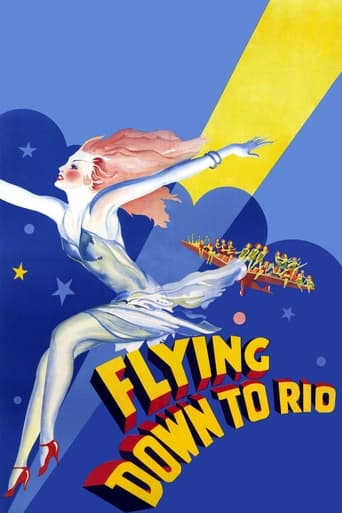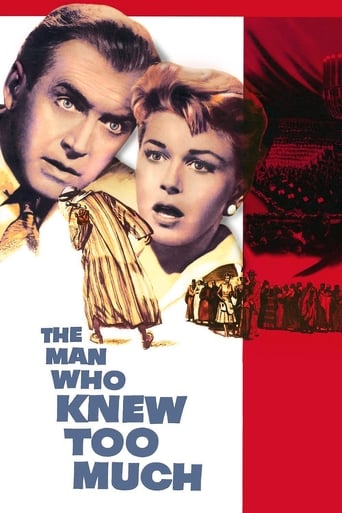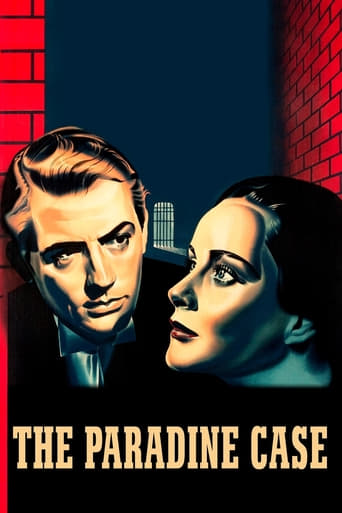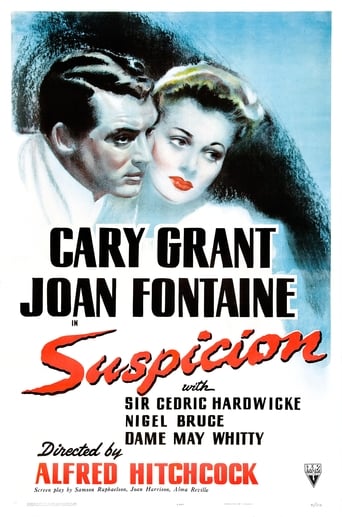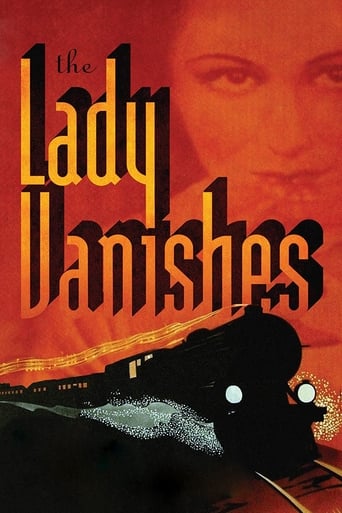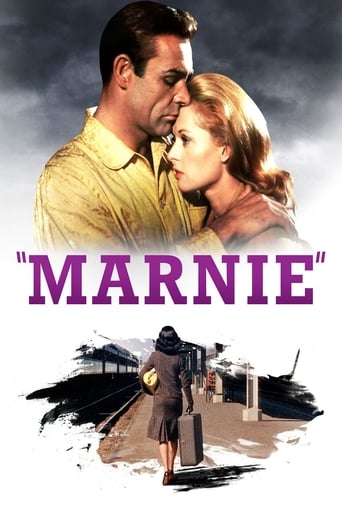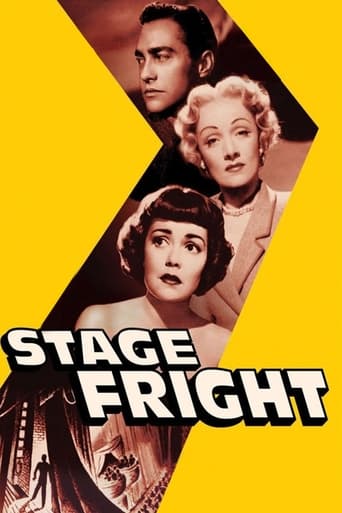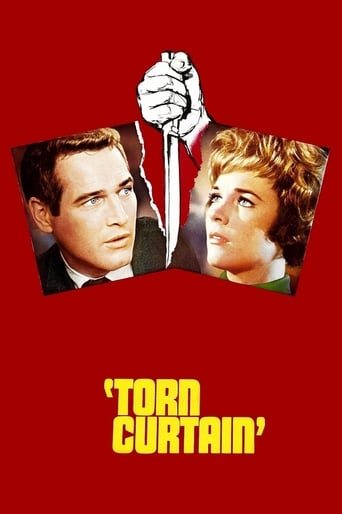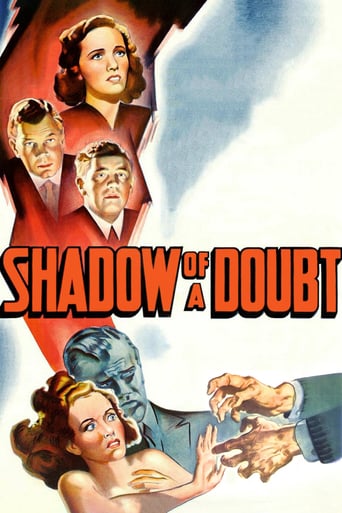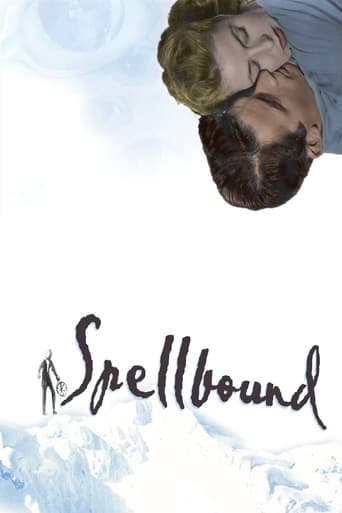


Spellbound
When Dr. Anthony Edwardes arrives at a Vermont mental hospital to replace the outgoing hospital director, Dr. Constance Peterson, a psychoanalyst, discovers Edwardes is actually an impostor. The man confesses that the real Dr. Edwardes is dead and fears he may have killed him, but cannot recall anything. Dr. Peterson, however is convinced his impostor is innocent of the man's murder, and joins him on a quest to unravel his amnesia through psychoanalysis.
-
- Cast:
- Ingrid Bergman , Gregory Peck , Michael Chekhov , Leo G. Carroll , Rhonda Fleming , John Emery , Norman Lloyd


Similar titles

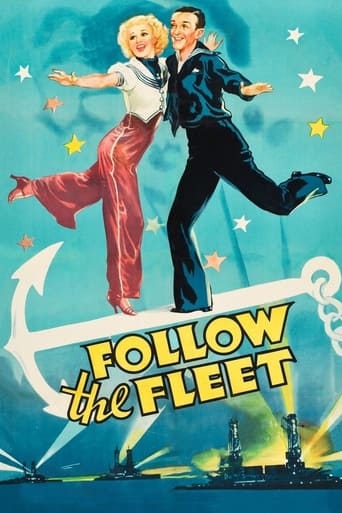
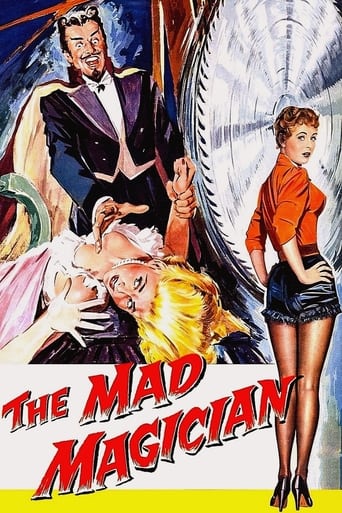
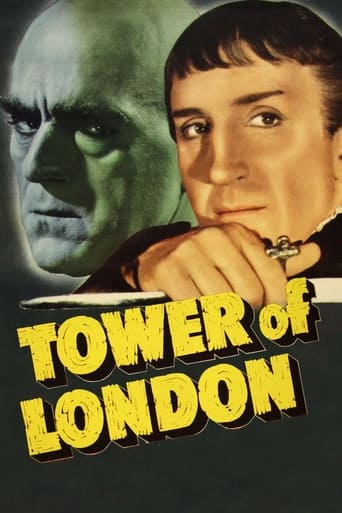




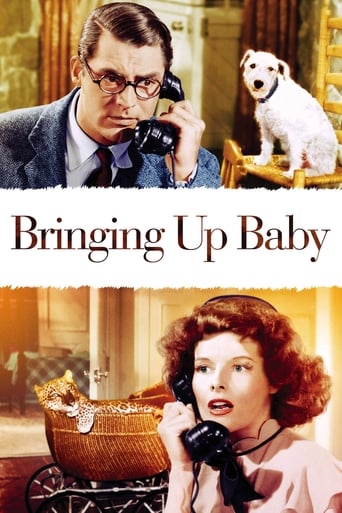
Reviews
How sad is this?
Good concept, poorly executed.
At first rather annoying in its heavy emphasis on reenactments, this movie ultimately proves fascinating, simply because the complicated, highly dramatic tale it tells still almost defies belief.
By the time the dramatic fireworks start popping off, each one feels earned.
One of Hitchcock's most aesthetically pleasing and understandable for a common viewer movies along with another underrated masterpiece 'To Catch a Thief'. Both young Bergman and Peck are so stunningly talented and beautiful that one wouldn't be sorry to die for them. Numerous beautiful yet simple scenes (the suicide scene, for instance) and an amazing surreal scene of a dream just makes this film a must-see.
Ingrid is spectacularly spellbinding, indeed: although it's supposed to be Gregory that's under the spell; and he is, but rather, again of Ingrid's dazzling radiant beauty that Hitchcock has fawned over in his camera direction - although as for Greg, portraying a guy who's got amnesia, but smitten by Dr. Constance, he's merely as wooden as furniture they caress around!As for the era's constant oh so overt sexist putdowns of her in this profession - seen from today it becomes amusing as though deliberately done to poke fun at the patriarchal world of that time: just listen to some of the hokey, if not female insulting, dialogue (= thanks one by Ben Hecht - see the quotes sidebar), yet likely exactly the sentiments for women in such professions in that closing world war period (check out the old - OLD! - out and out creep that hits on Ingrid in the hotel foyer: yeuch! Is that satire? Or actually how life really was for women, then?! Remember, Hitch had a reputation to creep out / harangue his young starlets.)In the film, are of course, some reputable cinematic 'tricks' to keep an eye out for: no plot spoiling here, other than to mention 'Dali' and also 'colour', as they should stand out as you watch: but back projection wasn't one of them, so the interminably long ski down hill makes you wonder that if they are shown as having HIKED up the perilous mountain side (no ski lift in sight), just how long must that have taken them, for such a lengthy ski down ?!Overall, gorgeous (count how many times Ingrid is presumably directed to fiddle with her hair - she's a woman, see?), but at many twists and turns, unintentionally hilarious. But psychoanalysis, interpret the dream, was serious, then y'know. So, enjoy one of Hitch's - and Ingrid's - best.
Even when Hitchcock stretches the bounds of reality, it is still such a trip. As Ingrid Bergman does everything she can to validate her feelings for an amnesiac with whom she has fallen in love, she puts herself in grave danger. Not only does she not know what lurks in the mind of Gregory Peck's character, but she does know that the police could be around every corner. Of course, everything here is Freudian and assumes that psychoanalysis is the only answer. Enter Salvador Dali. Imagine being a movie director who can call in one of our greatest artists and surrealists to do a part of his film. This set of scenes from the unconscious mind is about as memorable as anything that has ever been done in the movies. Some might call it pretty schmaltzy and convenient, but it is still remarkable. Of course, we know that all will be well. Hollywood at the time was pretty predictable. Nevertheless, watching great actors like Bergman and Peck play off one another makes it worth the price of admission.
By the mid-1940s, public awareness of Freudian theories had grown to the point where the time was right to make a thriller in which psychoanalysis featured strongly and Alfred Hitchcock's "Spellbound" does just that. Its plot involves murder, romance and a false identity but also focuses on amnesia, a guilt complex and the manifestations of a childhood trauma. This combination of story elements works well in creating interest and suspense, as well as providing scope for the considerable amount of visual flair that's evident, especially in a dream sequence (that was designed by Salvador Dali), an imaginatively staged suicide and a vision of a series of doors opening symbolically, in a scene where a couple kiss.By today's standards, what transpires in terms of dream analysis and the simplicity with which patients can overcome their problems through psychoanalysis, seems simplistic and dumbed-down but fortunately doesn't detract too greatly from the enjoyment of watching this movie which achieved great commercial success and was nominated for 6 Academy Awards.When Dr Murchison (Leo G Carroll), the director of Green Manors mental institution in Vermont, has to retire after suffering a period of nervous exhaustion, Dr Anthony Edwardes (Gregory Peck) is appointed to succeed him. All the members of staff are immediately surprised by how young their new boss is and when he's introduced to Dr Constance Petersen (Ingrid Bergman) there's an obvious mutual attraction. As the couple get to know each other, it quickly becomes apparent that Edwardes gets very agitated and dizzy every time he sees a series of parallel lines and soon Constance also discovers that he's an impostor.After Constance asks him about his identity, he admits that he's suffering from memory loss and doesn't know who he is, but is certain that he killed the real Dr Edwardes. He discovers from the cigarette case in his jacket pocket, that his initials must be J.B. and that night leaves Constance a note to inform her that he's left the institution to go to the Empire State Hotel in New York. The police start to investigate the real Dr Edwardes' disappearance and want to locate "J.B.". Constance is convinced that the man she loves is innocent and after pursuing him to his hotel takes him to Rochester to meet her elderly mentor, Dr Brulov (Michael Chekhov).At Brulov's residence, J.B. describes one of his dreams which Constance and Brulov then interpret to unravel the mystery of J.B.'s real identity, the source of his guilt complex and what he believes happened to the real Dr Edwardes.Surrealists and psychoanalysts share a preoccupation with the workings of the unconscious mind and Salvador Dali's contribution to this movie is a real highlight as is the suicide scene near the end which ends with a gun firing towards the audience and a red flash (the only colour seen in this black and white movie).Ingrid Bergman is outstanding as the psychoanalyst who's very dedicated and well-respected but general regarded by her colleagues as being frigid until her new boss arrives on the scene. Gregory Peck does well as the mysterious amnesiac and Michael Chekhov is wonderfully eccentric as Constance's old professor who, at one point, says "Good night and sweet dreams.........which we'll analyse at breakfast".

